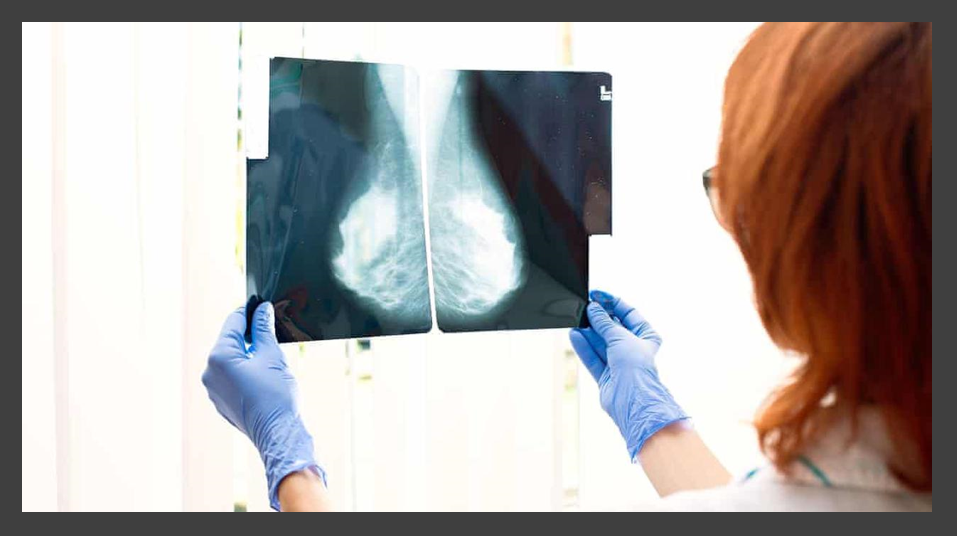News & Trends - MedTech & Diagnostics
Latest evolution in personalised medicine for breast cancer patients

MedTech News: Almost 20,000 women are diagnosed with breast cancer in Australia each year, with Ductal Carcinoma in situ (DCIS) – a common form of non-invasive breast cancer – accounting for up to one in five cases. DCIS is a common precursor to breast cancer.
GenesisCare announced that for the first time, Australian women with non-invasive breast cancer will have access to an innovative test to help predict outcomes and inform personalised treatment plans.
Combining the latest innovations in molecular biology with artificial intelligence, DCISionRT, developed by PreludeDx, is a precision medicine test for women diagnosed with DCIS who have undergone breast conserving surgery.
The DCISionRT test assesses the 10-year risk of DCIS returning or progressing to local invasive breast cancer and predicts whether radiation therapy will be of additional benefit to surgery alone.
The announcement follows new research from the Royal Melbourne Hospital recently presented at the Society of Surgical Oncology (SSO) 2021 International Conference on Surgical Cancer Care, which supports the
use of DCISionRT in addressing an unmet need in DCIS risk assessment in Australian breast cancer patients.
According to the study’s lead physician investigator, Professor Bruce Mann, Specialist Breast Surgeon and Director of Breast Cancer Services for Royal Melbourne and Royal Women’s Hospital, Melbourne “Historically, doctors have relied on clinical pathology, such as tumour grade and size, to determine treatment plans for patients with DCIS. However, results from our study support the role of DCISionRT in helping to identify those
patients who could benefit from radiation therapy.
“Managing breast cancer and DCIS requires an individualised approach based on each woman’s unique risk factors. Different patients may require different treatment approaches,” Prof Mann said.
“Patients with a low DCISionRT score are considered at low risk of their DCIS returning or progressing to potentially life-threatening invasive breast cancer. For these patients, surgery alone may be appropriate. However, women with elevated risk scores may benefit from receiving radiation therapy post-surgery.
“DCISionRT provides predictive molecular information from each patient’s tissue sample that allows doctors to identify patients with elevated risk scores who could benefit from radiation therapy. This personalised information also helps doctors identify patients who may not be candidates for radiation therapy, thereby helping them avoid unnecessary treatment,” said Prof Mann.
While DCIS is not life-threatening, if not treated effectively, it may become invasive and spread to other parts of the breast or body. In Australia, women who are diagnosed with DCIS are, on average, 3.9 times more likely to develop invasive breast cancer than Australian women of a similar age who have not had DCIS.
Among women whose DCIS was initially thought to have a low risk of recurrence or progression, 2 in 5 had their risk reclassified to an elevated stage when assessed using DCISionRT, revealing a potential need for radiation therapy post-surgery.
Furthermore, women under 50 with DCIS are generally considered to have an elevated risk of recurrence or progression and radiation therapy is commonly recommended for this age group. However, when using DCISionRT, almost 1 in 2 women under 50 were classified with a low risk of DCIS recurrence or progression, indicating that surgery alone may be appropriate.
GenesisCare Radiation Oncologist Dr Yvonne Zissiadis said “To provide physicians and patients with the opportunity to make more informed treatment decisions based on a patient’s individual risk profile – this is a gamechanger for breast cancer care in Australia.”
“GenesisCare is delighted to be bringing this latest evolution in personalised medicine to early-stage breast cancer patients across the country, which has the potential to significantly improve treatment decisions and patient outcomes.”
GenesisCare will also partner with PreludeDx on a research program using global real-world evidence to further the clinical development of precision medicine tests for breast and other cancers.
“As part of this Australia-first initiative, we have established the AUS PREDICT registry to further evaluate DCISionRT’s impact on treatment decisions as well as patient outcomes after surgery,” said Dr Zissiadis.
Vicki Durston, Director, Policy, Advocacy and Member Support at Breast Cancer Network Australia (BCNA), said “BCNA welcomes the innovative new test for people with DCIS. While the condition isn’t invasive breast cancer it’s treated in a similar way which can create significant confusion and worry.”
“The DCISionRT test allows physicians to assess with confidence their patient’s 10-year risk of recurrence or progression to invasive breast cancer and whether radiotherapy would be likely to be beneficial.”
“Often tests such as these are out of reach for many who cannot afford the out-of-pocket costs. We are delighted to support this new innovative test which will be available to patients in many public and private settings across Australia.”
Medical

NSW Health to settle ‘largest’ class action
A class action alleging NSW Health underpaid clinicians has settled after the department agreed to a payout of nearly a […]
MoreNews & Trends - Pharmaceuticals

Lilly’s first-in-class therapy PBS listed for early breast cancer after 15-year gap
Pharma News: Australians diagnosed with early-stage breast cancer, particularly those at high risk of recurrence, will gain access to the […]
MoreNews & Trends - Pharmaceuticals

AstraZeneza secures four PBAC nods in oncology, diabetes, kidney and rare diseases
Pharma News: AstraZeneca has scored four positive Pharmaceutical Benefits Advisory Committee (PBAC) recommendations following the March meeting. These recommendations, spanning […]
MoreNews & Trends - Pharmaceuticals

PBAC recommendation to reshape prescribing in heart failure
Pharma News: Aligned with the government’s Scope of Practice Review, the Pharmaceutical Benefits Advisory Committee (PBAC) has made a practice-changing […]
More